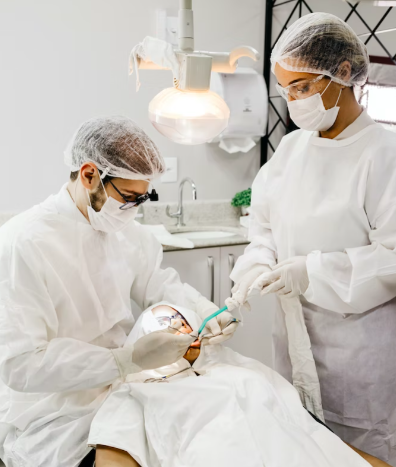Have you ever experienced the embarrassment and discomfort of missing a tooth? A dental bridge can restore your smile and boost your self-esteem.
To maximize the life of your bridge, be sure to visit your dentist regularly for checkups and professional cleanings. Additionally, brush twice daily and floss daily in order to keep your teeth healthy and prevent tooth decay. Learn everything you need to know about tooth bridges from your dentist during your next appointment.
1. Prevent Tooth Decay
By skipping your dental visit, you are not only putting your teeth at risk but also missing out on an opportunity to detect oral diseases in their early stages.
Tooth decay is caused by bacteria converting sugars into acids that damage teeth and may even lead to tooth loss. You can prevent it by avoiding certain foods and drinks, brushing twice daily with fluoride toothpaste, and flossing daily.
Bacteria and acid present in plaque eat away at your tooth’s enamel, the hard outer layer. They then reach the softer, less resistant dentin beneath.
2. Prevent Gum Disease
Gum disease, also known as periodontitis, is a serious oral health issue that can lead to bad breath and pain in addition to tooth loss.
Maintaining regular dental visits twice annually is essential for keeping your mouth and teeth healthy. Dentists and hygienists can detect early signs of gum disease before they worsen.
Brushing and flossing regularly are effective tools for preventing plaque build up. Additionally, drink plenty of water to keep your mouth hydrated.
Gum disease is a serious issue that can be worsened by medications, age, smoking and certain illnesses. If you smoke, it is recommended that you stop immediately and get on with your life.
Other preventive measures for gum disease include eating a balanced diet with plenty of fruits and vegetables, drinking water, and taking vitamin C supplements to strengthen your immunity. Vitamin C helps stop gums from bleeding or swelling – an issue common in gum disease.
3. Prevent Tooth Loss
Regular visits to the dentist are one of the most essential steps you can take for your oral health. They help guard against tooth decay, gum disease and jaw pain by helping keep you on top of things.
Your dentist will also offer guidance on how to best take care of your teeth and mouth at home, helping you maintain good oral hygiene for a lifetime.
Maintaining healthy teeth and gums can give you a major boost of self-esteem, as well as improve your quality of life. Furthermore, having healthy teeth and gums may even help protect against serious medical conditions like heart disease and diabetes.
4. Prevent Jaw Pain
If you’re experiencing jaw pain, it’s wise to schedule an appointment with your dentist right away. Doing so could help avoid further issues.
Your dentist will perform a comprehensive cleaning and exam, as well as take X-rays to detect cavities or other dental issues.
They may suggest wearing a mouth guard if you grind your teeth or clench your jaw during the day. These habits can be extremely uncomfortable and lead to serious health risks.
In addition to a healthy diet, your doctor may suggest stress reduction therapy and biofeedback. These techniques can help alleviate stress and ease pain.
5. Prevent TMJ
Maintaining regular dental visits is an integral part of maintaining good overall health. Getting regular care helps protect you against tooth decay, gum disease, loss of teeth, jaw pain and TMJ (temporomandibular joint disorder).
Left untreated, these problems may progress into more serious difficulties that are costly and painful to remedy.
TMJ disorders are caused by the temporomandibular joint, located in the lower jaw and acting like a sliding hinge that connects your skull to your jaw bone.
TMJ disorder is characterized by pain and sensitivity in the jaw, face, and neck that may or may not be associated with teeth grinding or clenching (bruxism). Additionally, it can cause headaches or migraines as well as prevent you from sleeping soundly at night.
Visiting your dentist regularly is one of the best reasons to visit your dentist. Your dentist will be able to identify any signs or symptoms of TMJ disorder and provide professional care and advice to help you prevent and manage the condition.



















